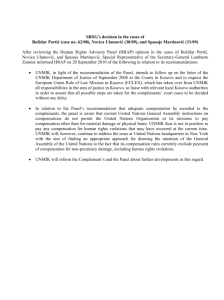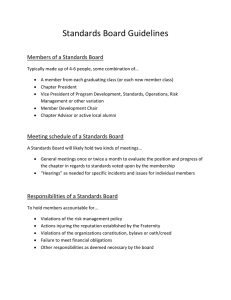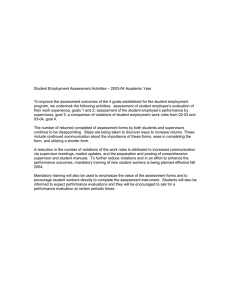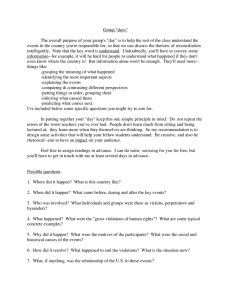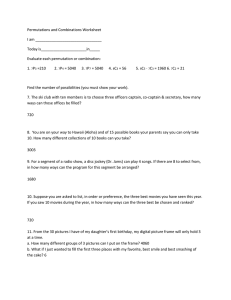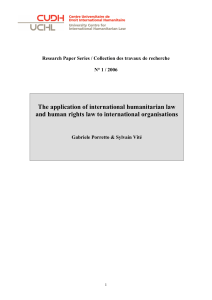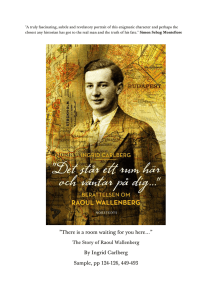Abstract for conference on The UN Security Council and Human... Human Rights Law Centre, University of Nottingham
advertisement
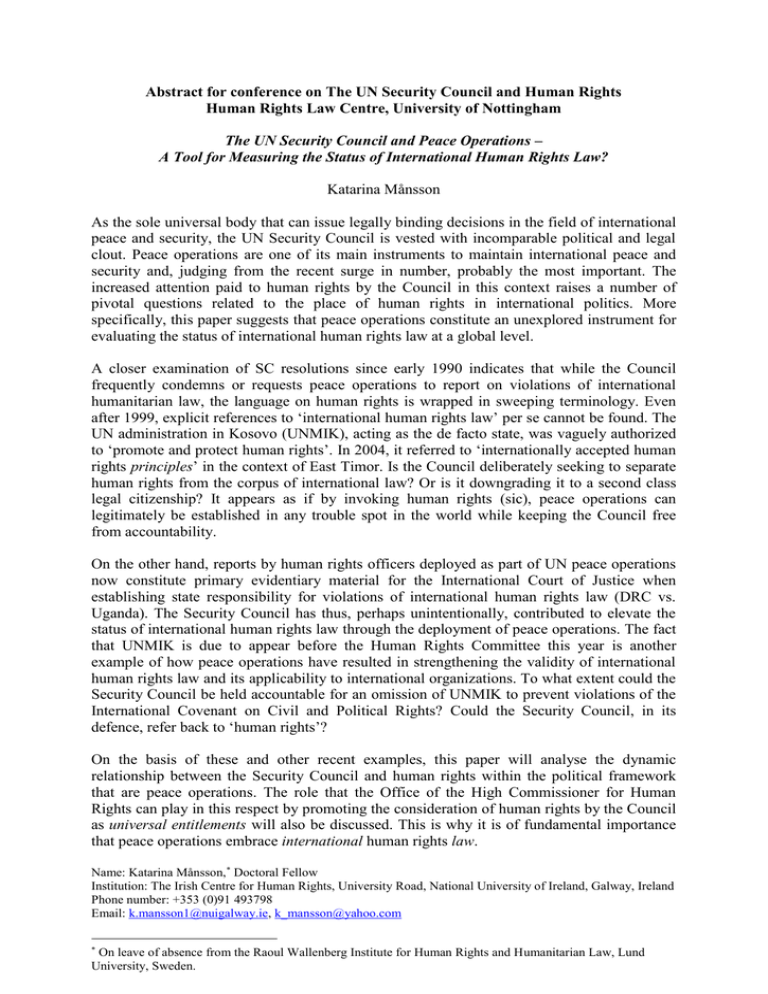
Abstract for conference on The UN Security Council and Human Rights Human Rights Law Centre, University of Nottingham The UN Security Council and Peace Operations – A Tool for Measuring the Status of International Human Rights Law? Katarina Månsson As the sole universal body that can issue legally binding decisions in the field of international peace and security, the UN Security Council is vested with incomparable political and legal clout. Peace operations are one of its main instruments to maintain international peace and security and, judging from the recent surge in number, probably the most important. The increased attention paid to human rights by the Council in this context raises a number of pivotal questions related to the place of human rights in international politics. More specifically, this paper suggests that peace operations constitute an unexplored instrument for evaluating the status of international human rights law at a global level. A closer examination of SC resolutions since early 1990 indicates that while the Council frequently condemns or requests peace operations to report on violations of international humanitarian law, the language on human rights is wrapped in sweeping terminology. Even after 1999, explicit references to ‘international human rights law’ per se cannot be found. The UN administration in Kosovo (UNMIK), acting as the de facto state, was vaguely authorized to ‘promote and protect human rights’. In 2004, it referred to ‘internationally accepted human rights principles’ in the context of East Timor. Is the Council deliberately seeking to separate human rights from the corpus of international law? Or is it downgrading it to a second class legal citizenship? It appears as if by invoking human rights (sic), peace operations can legitimately be established in any trouble spot in the world while keeping the Council free from accountability. On the other hand, reports by human rights officers deployed as part of UN peace operations now constitute primary evidentiary material for the International Court of Justice when establishing state responsibility for violations of international human rights law (DRC vs. Uganda). The Security Council has thus, perhaps unintentionally, contributed to elevate the status of international human rights law through the deployment of peace operations. The fact that UNMIK is due to appear before the Human Rights Committee this year is another example of how peace operations have resulted in strengthening the validity of international human rights law and its applicability to international organizations. To what extent could the Security Council be held accountable for an omission of UNMIK to prevent violations of the International Covenant on Civil and Political Rights? Could the Security Council, in its defence, refer back to ‘human rights’? On the basis of these and other recent examples, this paper will analyse the dynamic relationship between the Security Council and human rights within the political framework that are peace operations. The role that the Office of the High Commissioner for Human Rights can play in this respect by promoting the consideration of human rights by the Council as universal entitlements will also be discussed. This is why it is of fundamental importance that peace operations embrace international human rights law. Name: Katarina Månsson,* Doctoral Fellow Institution: The Irish Centre for Human Rights, University Road, National University of Ireland, Galway, Ireland Phone number: +353 (0)91 493798 Email: k.mansson1@nuigalway.ie, k_mansson@yahoo.com * On leave of absence from the Raoul Wallenberg Institute for Human Rights and Humanitarian Law, Lund University, Sweden.
